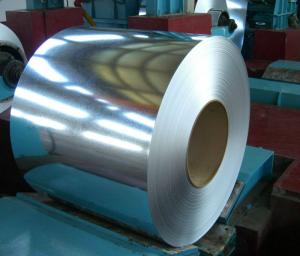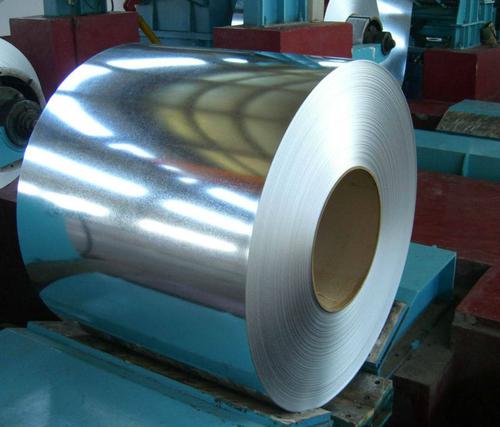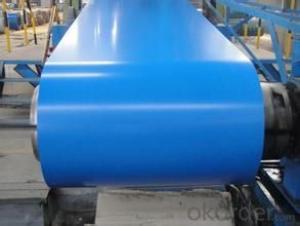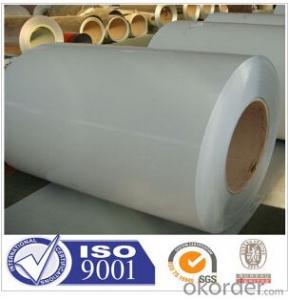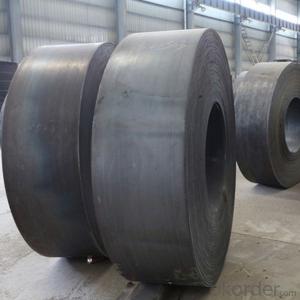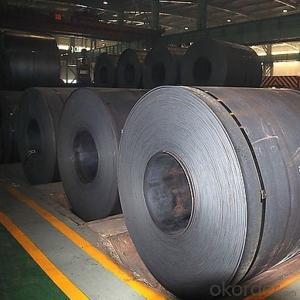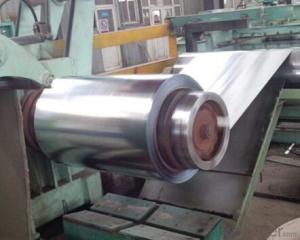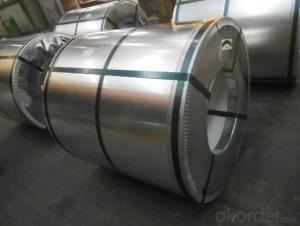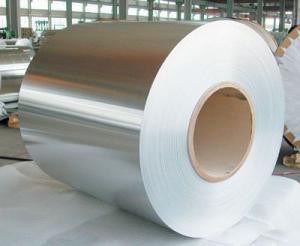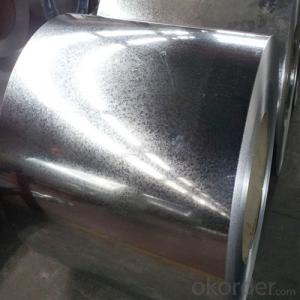Hot dipped Galvanized Steel Coil Made in China
- Loading Port:
- China Main Port
- Payment Terms:
- TT or LC
- Min Order Qty:
- -
- Supply Capability:
- -
OKorder Service Pledge
Quality Product, Order Online Tracking, Timely Delivery
OKorder Financial Service
Credit Rating, Credit Services, Credit Purchasing
You Might Also Like
HOT DIP GALVANIZED STEEL COIL
Specification:0.3mm*1000mm*c
Steel Grade & Standard: ASTM A653
Zinc Coating Mass:Z180 Spangle:Zero Spangle
Surface Treatment: non-chromate, oiled
Coil ID:508mm Coil Weight:6-10MT
Package Type:EYE TO SIDE
Thickness Tolerance:+/-0.02mm Width Tolerance:+/-5mm
Zinc Coating Tolerance:-/+10g/m2
- Q: How are steel coils used in the manufacturing of storage tanks?
- Steel coils are used in the manufacturing of storage tanks as they serve as the primary material for constructing the tank shell. The coils are processed and shaped into cylindrical sections, which are then welded together to form the tank. This ensures strength, durability, and leak-proof construction, making steel coils an essential component in the fabrication process of storage tanks.
- Q: What are steel coils?
- Steel coils are long, flat sheets of steel that have been wound into a coil shape. They are used in various industries for manufacturing purposes, such as in the automotive, construction, and appliance industries. Steel coils are typically made from carbon steel and are commonly used for applications that require strength and durability.
- Q: Can steel coils be used in the manufacturing of appliances?
- Yes, steel coils can be used in the manufacturing of appliances. Steel coils are often used as a primary raw material in the production of various appliances such as refrigerators, stoves, dishwashers, and washing machines. The steel coils are typically processed and shaped into specific parts or components required for the appliances, such as panels, frames, or doors. The use of steel coils in appliance manufacturing offers several advantages, including strength, durability, and resistance to corrosion. Additionally, steel coils can be easily fabricated and manipulated to meet the specific design requirements of different appliances, making them a versatile and commonly used material in the industry.
- Q: Is it just because brass is reloadable? But what makes it reloadable? What does brass bring to the equation that the steel cased ammo can't do?
- Brass is slightly softer than annealed steel. Both can be reloaded, once or maybe even twice. But STEEL has a tendency to WORK HARDEN, becoming brittle. Which is why it's used for tools and other applications where work hardening is a plus. It's actually designed to do that. Brass does not work harden, because it is a different sort of metal. That's the main reason.
- Q: Guitar?I have a steel- string, but prefer nylon.:)
- Steel string 4 playing wid plectrum, nylon 4 finger style playing
- Q: What are the dimensions of steel coils used in the industrial machinery industry?
- The dimensions of steel coils used in the industrial machinery industry can vary depending on the specific application and requirements. However, common dimensions for steel coils used in this industry range from 0.15 to 3.5 mm in thickness and 600 to 2,000 mm in width. The inner diameter of the coil typically ranges from 508 to 762 mm. It is important to note that these dimensions can vary based on the specific needs of the machinery and the manufacturer.
- Q: What are the typical coil thickness options?
- The typical coil thickness options vary depending on the specific application and industry. However, common coil thickness options range from 0.005 inches (0.13 mm) to 0.250 inches (6.35 mm).
- Q: How are steel coils used in the production of bridges?
- Steel coils are used in the production of bridges as they are processed and shaped into various structural components like beams, plates, and girders. These coils are first uncoiled and then cut, rolled, and welded to create the required bridge sections. The high strength and durability of steel make it an ideal material for bridges, and the use of steel coils allows for efficient and precise manufacturing of these vital infrastructure elements.
- Q: So, I'm doing this project for my chemistry class and I need to explain the raw materials in which paper slips are made of. I'm not really sure if galvanized steel is. If not, can someone PLEASE tell me what raw materials are metal paper clips made of???
- The term 'raw material' usually refers to the components that a manufacturer must purchase in order to make a product. For example, an automotive manufacturer would purchase galvanized steel from a steel supplier, and would consider galvanized steel to be a raw material for his production process. However, I suspect that your instructor means to imply something slightly different. I suspect that the question is really asking what are the 'primary' or 'fundamental' components of a paper clip. In that case, the definition goes beyond what must the paper clip manufacturer purchase, and is really asking what fundamental physical elements go into the manufacture of paper clips. So the answer would be iron, carbon, oxygen, etc, because those are the elements that are required to produce steel. By the way, I'm not sure that paper clips are made from galvanized steel - or for that matter, even from steel. But that's another question.
- Q: Are steel coils used in shipbuilding?
- Yes, steel coils are commonly used in shipbuilding. They are used primarily for the construction of the ship's hull and other structural components due to their strength, durability, and ability to withstand harsh marine environments.
Send your message to us
Hot dipped Galvanized Steel Coil Made in China
- Loading Port:
- China Main Port
- Payment Terms:
- TT or LC
- Min Order Qty:
- -
- Supply Capability:
- -
OKorder Service Pledge
Quality Product, Order Online Tracking, Timely Delivery
OKorder Financial Service
Credit Rating, Credit Services, Credit Purchasing
Similar products
Hot products
Hot Searches
Related keywords
